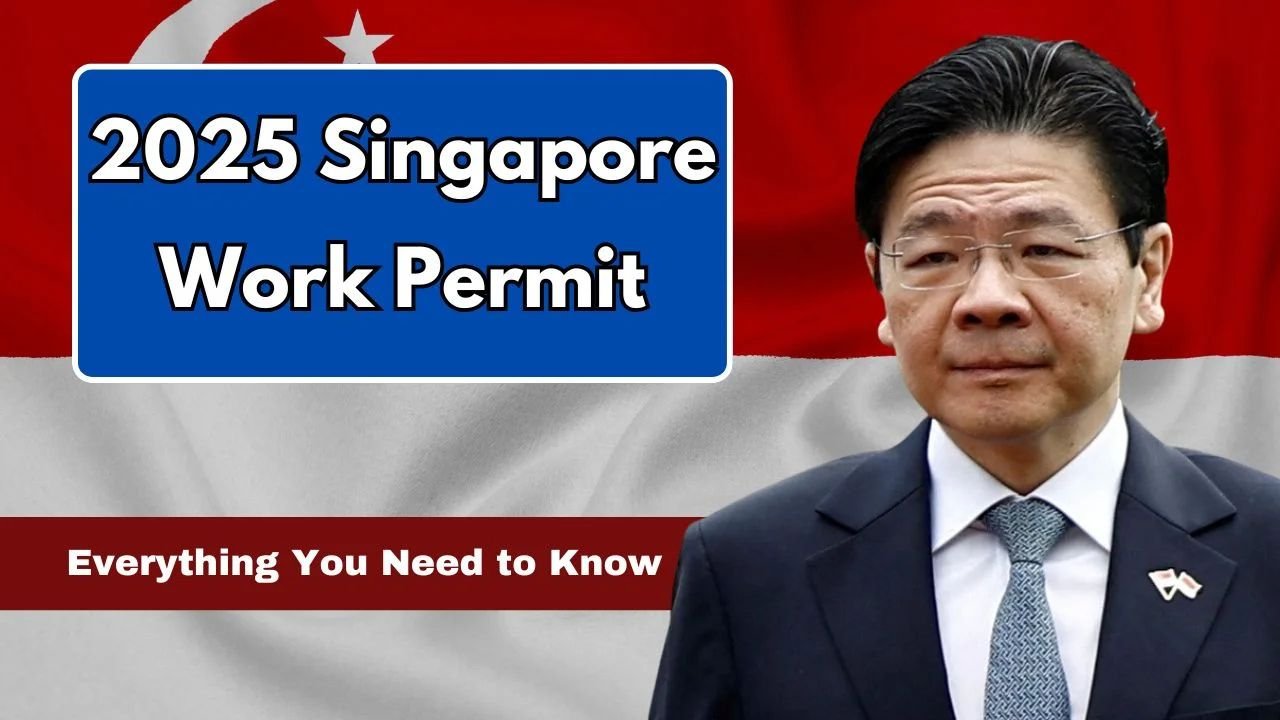Singapore’s work permit regulations are getting a major overhaul in 2025, impacting foreign professionals and businesses alike. These updates aim to build a stronger, more skilled workforce while balancing the needs of local talent and global expertise. If you’re planning to work in Singapore or hire foreign workers, understanding these changes is crucial for compliance and success. In this article, we break down the key updates, their implications, and practical steps to navigate the new system.
Why Singapore Is Updating Its Work Permit Rules
Singapore’s economy thrives on its ability to attract top talent while nurturing local workers. The 2025 work permit changes reflect the government’s focus on:
- Boosting productivity through skilled labor
- Ensuring fair wages for all workers
- Prioritizing local hiring while welcoming global expertise
- Streamlining processes for faster, transparent approvals
These reforms, led by the Ministry of Manpower (MOM), aim to keep Singapore competitive in a fast-changing global job market. Let’s dive into the key changes and what they mean for you.
Key Changes in the 2025 Singapore Work Permit Framework
The 2025 updates introduce stricter criteria and streamlined processes. Here’s a detailed look at the most important changes:
1. Higher Salary Thresholds for Key Sectors
The minimum salary requirements for work permits in sectors like construction, marine, and manufacturing are increasing. This change is designed to:
- Attract highly skilled professionals
- Reduce reliance on low-cost, low-skilled labor
- Promote better wages and living standards
Employers must ensure that foreign workers meet these new salary benchmarks, or their applications may be rejected. This shift encourages businesses to prioritize quality over cost.
2. Stricter Age and Qualification Requirements
The 2025 rules set clearer eligibility criteria for foreign workers:
- Applicants must be under 50 years old
- Relevant educational qualifications are mandatory
- Verifiable industry experience or technical skills are required
These requirements align with Singapore’s goal of building a future-ready workforce. Foreign workers should focus on upskilling and maintaining detailed records of their qualifications and experience.
3. Enhanced Employer Responsibilities
Employers face tougher obligations when hiring foreign talent. They must:
- Show active efforts to recruit Singaporeans first
- Provide training or upskilling programs for local staff
- Submit detailed job descriptions and justify hiring foreign workers
Non-compliance could lead to delays or rejections. This ensures foreign hires complement, rather than compete with, local talent.
4. Streamlined Application Process
The application process is now more efficient but demands precision:
- Online submissions are optimized for speed
- Complete, compliant applications are prioritized
- Incomplete submissions may face delays or rejections
This change benefits applicants who prepare thoroughly, ensuring faster approvals for those who meet the criteria.
Overview of 2025 Work Permit Changes
Here’s a clear comparison of the old and new policies to help you understand the updates:
| Aspect | Previous Policy | 2025 Update |
|---|---|---|
| Minimum Salary | Lower thresholds in key sectors | Higher thresholds to attract skilled workers |
| Age Requirement | No strict upper limit | Capped at 50 years |
| Educational Qualifications | Basic or undefined | Relevant credentials mandatory |
| Employer Justification | General manpower needs | Proof of local recruitment efforts required |
| Application Process | Paper-heavy, slower | Streamlined online, stricter documentation |
| Focus | Open labor access | Skilled, productive workforce |
What These Changes Mean for Employers
Employers must adapt to the new rules to avoid penalties or delays. Here’s what businesses need to do:
- Revise job descriptions: Ensure they align with MOM’s standards
- Invest in local talent: Implement training programs for Singaporean employees
- Document recruitment efforts: Provide clear evidence of local hiring attempts
By preparing thoroughly, companies can secure the foreign talent they need while supporting Singapore’s workforce goals.
What These Changes Mean for Foreign Workers
For foreign professionals, the 2025 rules mean tougher competition but also great opportunities for skilled individuals. To boost your chances of approval:
- Update your qualifications: Obtain relevant certifications
- Document your experience: Keep detailed records of your work history
- Target high-demand roles: Focus on sectors needing specialized skills
Skilled workers in fields like technology, engineering, or healthcare may find faster approvals and better opportunities.
How to Prepare for the 2025 Work Permit Changes
Both employers and workers can take proactive steps to succeed under the new system:
- Upskill early: Enroll in relevant courses or certifications
- Prepare documentation: Ensure all qualifications and experience records are up-to-date
- Stay informed: Regularly check the MOM website for the latest guidelines
- Consult experts: Work with HR professionals or immigration consultants for complex cases
By aligning with these updates, you’ll navigate the process smoothly and avoid setbacks.
Frequently Asked Questions (FAQs)
Q: Who is most affected by the 2025 work permit changes?
A: Workers in construction, marine, and manufacturing face stricter salary and qualification rules.
Q: Is there an age limit for work permit applicants?
A: Yes, applicants must be under 50 years old.
Q: How has the application process changed?
A: It’s now fully online, faster, but requires complete and accurate documentation.
Q: Do employers need to justify hiring foreign workers?
A: Yes, they must prove they tried hiring locals first and justify the need for foreign talent.
Q: How can foreign workers improve their approval chances?
A: Update certifications, document experience, and apply for roles in high-demand sectors.
Final Thoughts
The 2025 Singapore Work Permit updates are a game-changer for foreign workers and employers. By focusing on skills, fair wages, and local talent development, Singapore is building a stronger, more competitive job market. Whether you’re a professional seeking opportunities or a business hiring global talent, adapting to these changes is key. Start preparing now—update your skills, refine your applications, and stay informed through the Ministry of Manpower’s official website. With the right approach, you can thrive in Singapore’s dynamic workforce.




